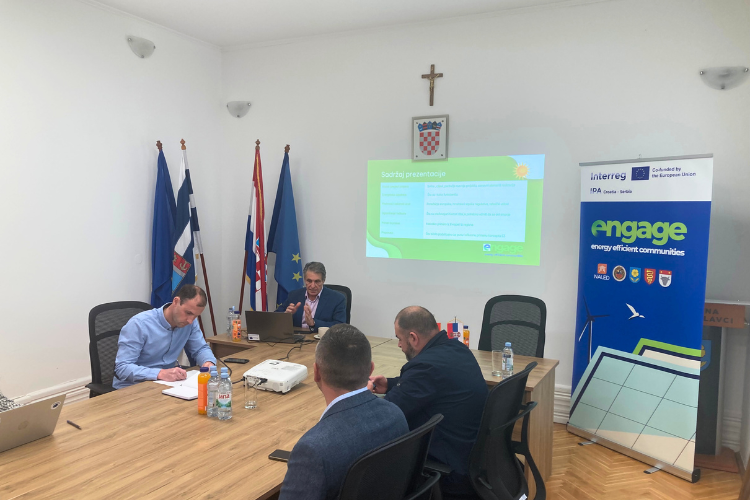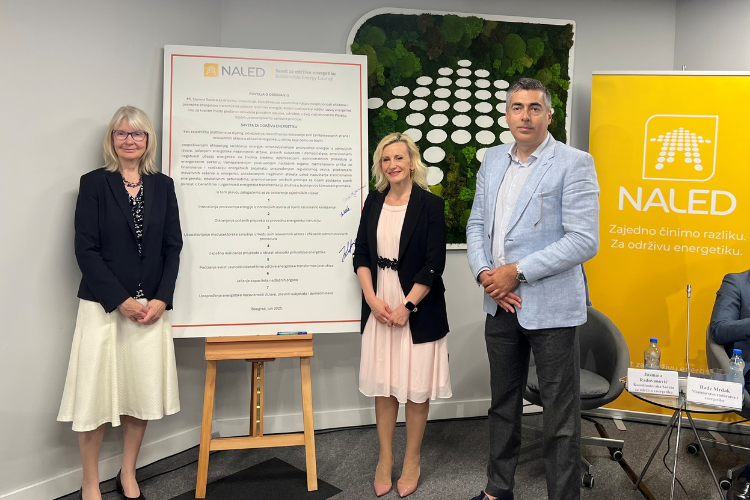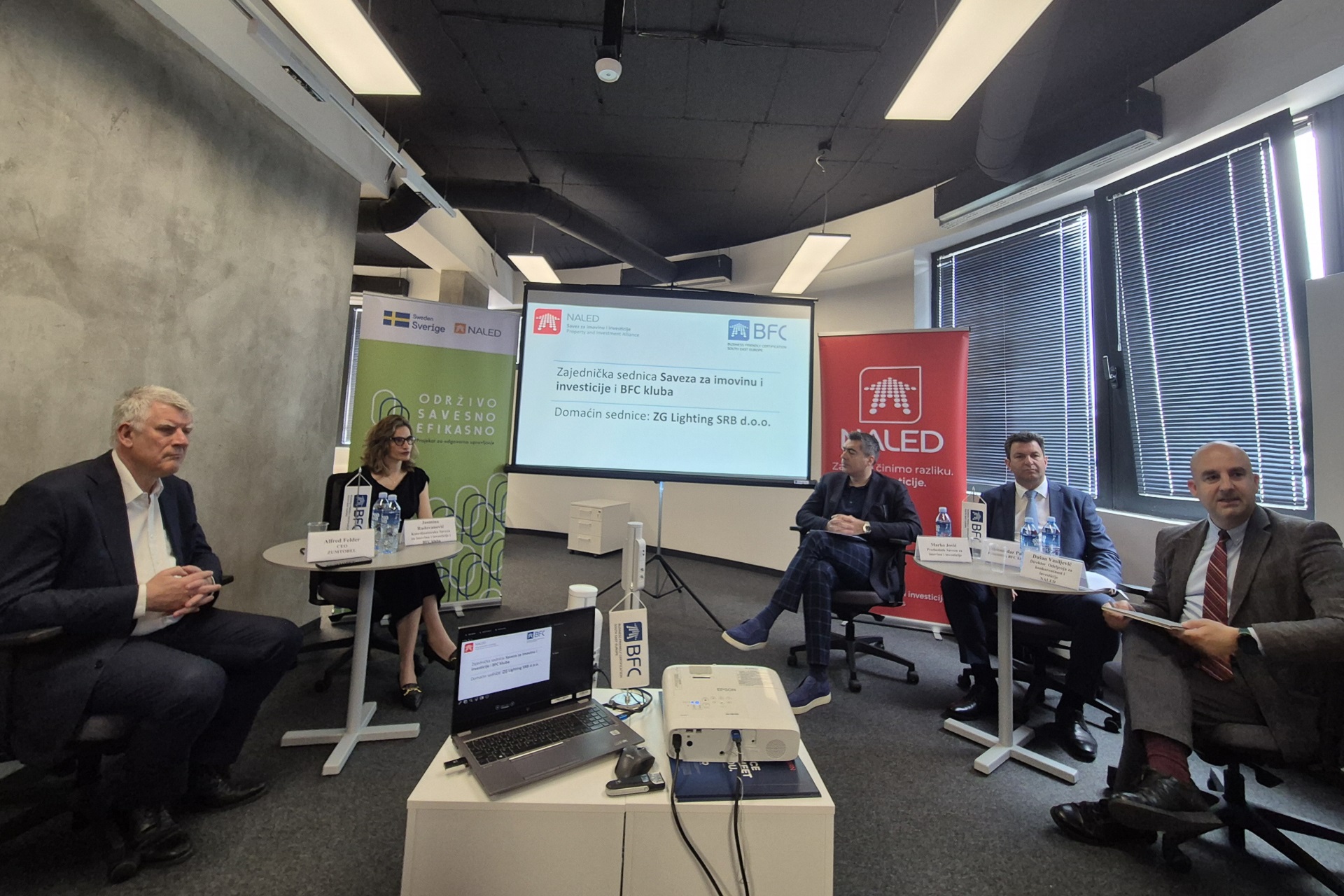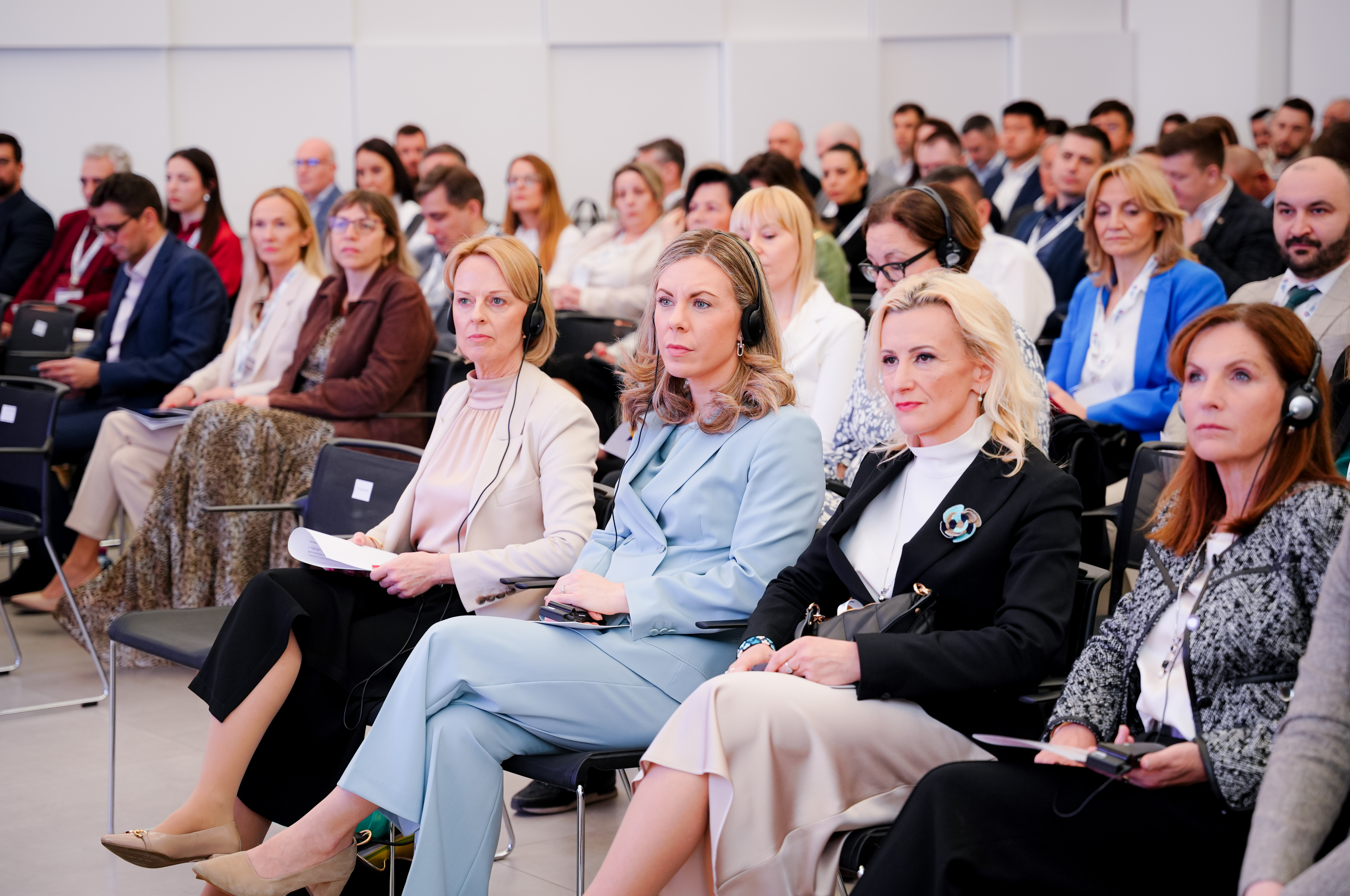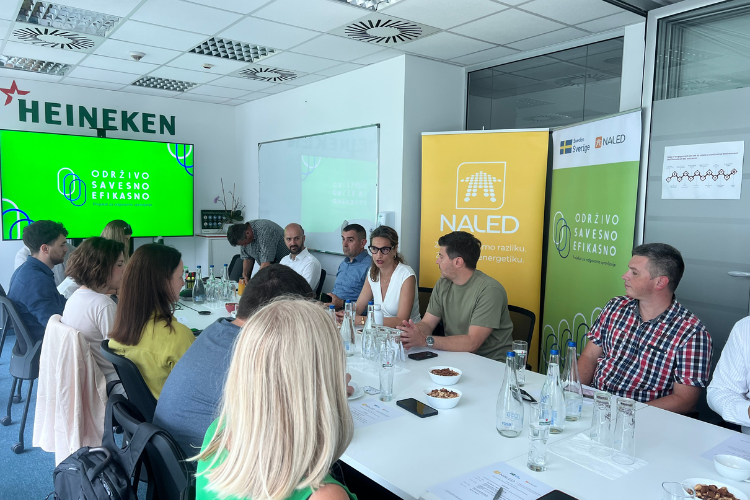Presentation of the new presidency and prerequisites for the formation of energy communities in the focus of the session of the Council for Sustainable Energy
The establishment of energy communities in Serbia, the needs of local self-governments in the energy transition and the views of the economy on long-term electricity purchase agreements (PPA agreements) were the three most important topics of the formal session of the Council for Sustainable Energy, formed under the auspices of the Government of Sweden. At the session, the presidency of the Council was presented, consisting of Neda Lazendić, director of the Windvision company and president of the Council, Saša Pavlović, mayor of Požarevac and vice-president of the Council and Associate Professor Dr Mileta Žarković, professor at the Faculty of Electrical Engineering and vice president of the Council.
The Ambassador of Sweden to Serbia, Charlotte Samelin, stated that sustainable energy is a strategic priority for the further development and progress of the country, because investing in clean energy builds resilience, encourages innovation and supports long-term growth. - The Council for Sustainable Energy was formed with the support of the Swedish Government as part of the project More efficient public procurement and sustainable supply chains to improve competitiveness. We consider it a useful and important platform for networking between the private and public sectors - said Samelin.
Advisor to the Minister of Mining and Energy for renewable energy sources Rade Mrdak stated in the context of energy communities that the law provides a clear outline of the structure of relations within them and reminded that these communities must not be profit organizations, which provides the possibility for the community to be formed as an association of citizens or as a cooperative.
- At the end of the year, we are expecting amendments to the Electricity Supply Regulation, which will define in more detail the prerequisites for the establishment of energy communities and the rules for the distribution of energy between community members, followed by the implementation phase. We hope that donors will appear who will help citizens through grants in the initial phase while the market is still being formed - said Mrdak.
Coordinator of the Council for Sustainable Energy and leading advisor for property and investments in NALED, Jasmina Radovanović, reminded that the work of the Council takes place in a wider ESG context, in accordance with the principles of responsible management, social responsibility and environmental protection and climate sustainability. - These values are also the basis of the green transition to which Serbia is striving and which we must all support together through quality public policies, intersectoral dialogue, but also through specific local initiatives - she stated.
In order to develop energy communities in Serbia, recommendations were presented at the meeting, which include the need to improve legal regulations, create a single contact point for issuing permits ("one-stop shop") as additional support for the establishment of energy communities, and the need to adjust tax and price policy. Local governments are among the first desirable members of the energy community.
One of the topics of the session was the presentation of research results on the needs of local self-governments in the energy transition. The results indicate that half of the self-governments are already implementing local energy transition projects, and they assessed that they need additional support in technical training and staff capacities, securing financing and strategic planning and adoption of local energy or climate plans.
There was talk again about long-term electricity supply contracts. This model of long-term contractual cooperation is concluded between producers and consumers of electricity and defines the conditions of pre-defined terms of sale and purchase of electricity at a price more favorable than the market price. The analysis of PPA contracts conducted by NALED in June of this year shows that more than half of the companies (63%) are familiar with such contracts, but the majority (74%) have not used them in practice so far. The biggest obstacles were cited by the underdevelopment of the market (38%) and the lack of knowledge and producers (13%).
An obstacle for PPA contracts to be more widely used in Serbia is the impossibility of direct contracting between producers and buyers, which requires regulatory changes, and it is also necessary to conduct an educational campaign for investors on the advantages of these contracts.
- I really believe that Serbia has the capacity to become a leader of the green transition in the Western Balkans if we connect the private sector, academic knowledge and the state as a decision-maker through clear and predictable rules - concluded Neda Lazendić, the president of the Council.




